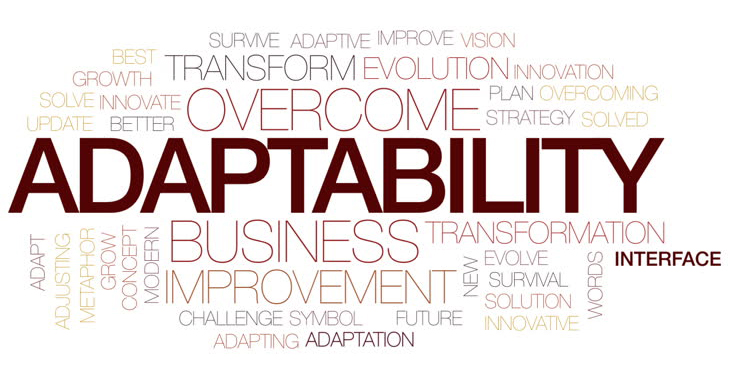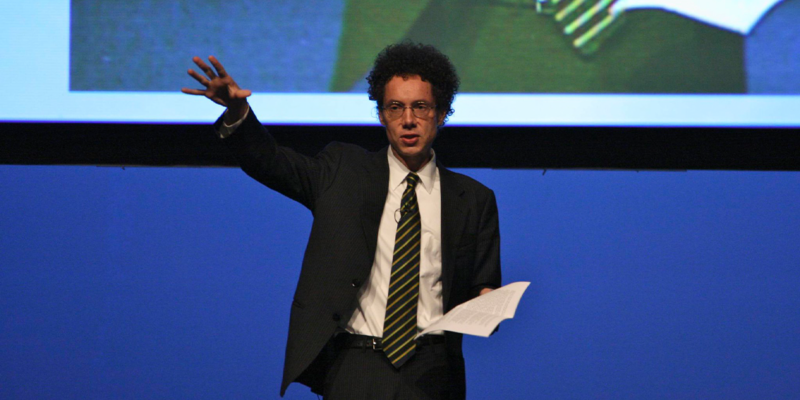Adaptability in Business: Lessons From Sports
The ability to adapt may prove to be the most valuable superpower businesses can possess in today’s world. Business as usual has been disrupted repeatedly by natural disasters, climate change, geopolitical conflict, war, a pandemic, supply change issues, and the great resignation … and that’s just in the last 24 months.
If you think those issues are temporary and not likely to persist in the near future, then your optimism may be getting the better of you. Thought leaders like Greg Verdino and Peter Hinssen have started using the term “The Never Normal” to describe a future where several areas of accelerating change continue to collide. If you’re waiting for a new normal to emerge, you’ll be left behind.
Instead, we should be focusing on our ability to adapt to whatever the world sends our way. In business, where we often look to consultants or industry peers to follow their lead, that can be hard, so I decided it might be fun to shift our mindsets and look for lessons from other areas.

With that, I invited an industry friend, who also happens to be an amazing running coach, Amelia Vrabel, to share some lessons from sports that may be of use in our businesses.

Plan. Then plan on the plan not going according to plan.
“In order to accomplish any large project, whether it’s training for a marathon or designing a complex system, it is best accomplished by breaking it down into small chunks,” said Amelia. “When you train for a marathon, you build up a training schedule with the end goal in mind and work backwards to progress.”
“However, I like to add an extra week into my schedule so that when things don’t go according to plan – ie. illness, travel, family emergency, you know that you have the buffer built in. In business, we can apply a similar philosophy. Build in that extra time up front and you’ll be less frazzled when the plan doesn’t go according to plan.”
Amelia’s advice rings true, across sports and businesses. We don’t live in an ideal world. Building in contingencies for the unexpected can be extremely valuable.
As sports icon Mike Tyson has famously said, “Everyone has a plan until they get punched in the mouth.”

You can only improve when you can absorb the training.
“Training breaks your body down, while recovery allows you to absorb the training”, says Amelia. “If you fail to take recovery time then you will actually gain little from the work you have done.”
This is sage advice. In business, we often mistake motion for progress, and busyness for productivity.
We are constantly reacting to new challenges and sometimes, we need to find time to pause, reflect, recover and redirect. Recovery allows us to heal, not overreact emotionally, and to reflect and re-prioritize.
She goes on to share, “Your mind is not that different. Sure, you can go about doing the daily tasks, but unless you allow yourself the time to rest, reflect, and absorb the knowledge you have gained – you will not be as effective in putting it to use for future projects. During those times when you need to get creative or pivot your thinking – a clear mind and well rested body will be much better set up for success.”
I agree that there is value in resting between tasks. Just like an athlete can become injured by running full speed and then changing directions or trying to stop too quickly, we can do ourselves a disservice by jumping from meeting to meeting or task to task. Our brains also need time to change gears and building in some recovery time throughout the day can actually increase, not decrease, productivity.
Train not just what you do but the components of it which make your practice excel.
“If you want to be a good runner, you need to do more than practice running one hour a day”, states Amelia. “What about the other 23 hours? We already spoke of rest, so you have 8 hours dedicated there. That leaves 15 more hours. I like to remind people that you have even more time to practice running when you’re not running.”
“For instance, you can practice posture just by adjusting your workstation so that you aren’t hunched over when you work. (Please don’t sit all day!) You can practice relaxed walking techniques any time you are moving. You can practice good nutrition to fuel your body for success.”
“Likewise, look for opportunities to advance your skills outside of your “job description”. Could you volunteer for opportunities to write, speak, mentor? Training and using your skills outside of your standard role allows you to be extremely adaptable to new environments and situational changes”, she says.
During the pandemic, we saw a huge need for this in certain industries. Certain industries were hit harder than others by closures and gathering restrictions. Take Live Events, for instance, where all concerts and conventions were essentially canceled for 18 months.
What Amelia talks about above lends itself to the concept of “transferrable skills.” These are skills that are valuable to your current role in business but have far-reaching value across different roles and industries as well.
Honing skills with a wide range of applications make people and businesses stronger and more adaptable to change. Doing an audit of your core strengths as a company with this in mind makes you extremely adaptable to the changing world.
Instead of asking, “When will things go back to normal?” we should be asking questions like:
- What are our core strengths?
- Where are these core strengths best utilized in today’s environment?
- If we were to start a business today with these skills, what market would we serve and what service would we provide?
These are the types of questions that inspire adaptability.
A huge shoutout to Amelia Vrabel for collaborating with me on this blog and providing these tips and tricks. Ironically, at the time of this writing, she was exercising her own adaptability and finding the best place to utilize her skills in a changing world. I can’t wait to see what her new future holds, and I hope the future of your businesses is adaptive and bright as well.





